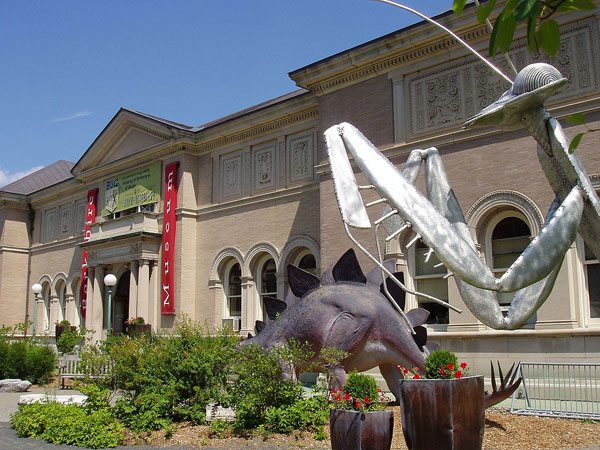
February 26, 2018; Berkshire Eagle
Earlier this month, the Massachusetts state attorney general’s office and the Berkshire Museum filed a joint petition seeking approval of a settlement agreement that would enable the Museum to sell masterworks of art to shore up its financial position. But that agreement is contingent on Court approval. Two groups are expected to file briefs to the Supreme Judicial Court in Suffolk County to object to the settlement reached by the museum and the state attorney general.
The settlement agreement allows the Berkshire Museum, which has suffered regular losses averaging over $1 million a year (on an annual budget of $2.4 million), to sell up to $55 million in artwork to stem these losses and to serve as a capital base going forward to implement the museum board’s strategic vision of being an “exciting new interdisciplinary Museum, with a heightened emphasis on science and history as well as the arts.”
In exchange, the Museum has agreed to limit the income it collects from sales to $55 million and to sell one key Norman Rockwell masterwork, Shuffleton’s Barbershop, to another nonprofit museum to keep the art in public view; the museum buyer, not yet publicly disclosed, has indicated that it would allow the Norman Rockwell Art Museum in nearby Stockbridge to display the painting “for up to two years. The new owner will also explore subsequently loaning the work to other Massachusetts museums before it leaves the state for its new home.”
Writing for the Berkshire Eagle, Larry Parnass notes that, “While plaintiffs who oppose the planned sale will get their say before the [court], it will be in the limited capacity as a ‘friend of the court,’ not as intervenors with more litigation options.” Parnass adds that, “Though the plaintiffs were parties to litigation in both Berkshire Superior Court and the Massachusetts Appeals Court, the briefs to the superior court, because they are amicus briefs are legally speaking submissions by ‘nonparties.’”
Amy Stewart, the assistant clerk overseeing the case, says Justice David Lowy will review all documents and determine whether to call a hearing on the petition. The justice can rule himself, with or without a hearing. The justice could also choose to refer the case to the full court.
Not all of the original plaintiffs have a uniform position regarding the settlement agreement. According to Parnass, “three of [Norman] Rockwell’s sons…left the case last week, saying they had achieved their main goal of keeping Shuffleton’s Barbershop in the public realm.”
Sign up for our free newsletters
Subscribe to NPQ's newsletters to have our top stories delivered directly to your inbox.
By signing up, you agree to our privacy policy and terms of use, and to receive messages from NPQ and our partners.
Other plaintiffs are decidedly not satisfied by the proposed settlement terms. Earlier this week, Berkshire Museum members James Hatt, Kristin Hatt, and Elizabeth Weinberg filed their amicus brief with the Supreme Judicial Court.
The hearing comes down to whether the settlement agreement satisfies the “cy près” doctrine. As was noted in NPQ in an article earlier this month that also examined conditions when a donation recipient may be freed of donor obligations, the Cornell Law School explains the rule as follows:
If it becomes unlawful, impossible, or impracticable to carry out the purpose of the designated charitable trust or becomes wasteful to apply all the property to the designated purpose, the trust will not fail but instead the court will direct the application of the property (or a portion of the property) to a charitable purpose that reasonably approximates the designated purpose. The cy près doctrine means “as near as possible”—practically, this means that the court rewrites the charitable gift or trust so that it is no longer impossible or impracticable to carry out.
In the Berkshire Museum case, the state is agreeing to release the museum from its obligation to keep art works in the public domain in order to oversee what the state sees as the greater good of preserving a strong nonprofit museum in Pittsfield, a postindustrial city with a population of less than 45,000.
The amicus brief field by Weinberg and the Hatts begs to differ:
The further management of the Museum is not impossible or impracticable–the first element of a cy près petition–it is difficult because the board of Trustees ceased fundraising years ago and chose instead to try to be an iconoclast of museum ethics by bartering paintings that the Pittsfield community has cherished for over a century. Bent on “monetizing” a collection that was assembled for precisely the opposite reason, the petition fails to persuade. The AGO’s [Attorney General Office’s] endorsement, or at least refusal to oppose, this abandonment of the Museum’s charitable restrictions is particularly disappointing; after assembling a months-long record of the Museum’s mismanagement, the AGO now waives the Trustees through the gate that it should be guarding.
—Steve Dubb













